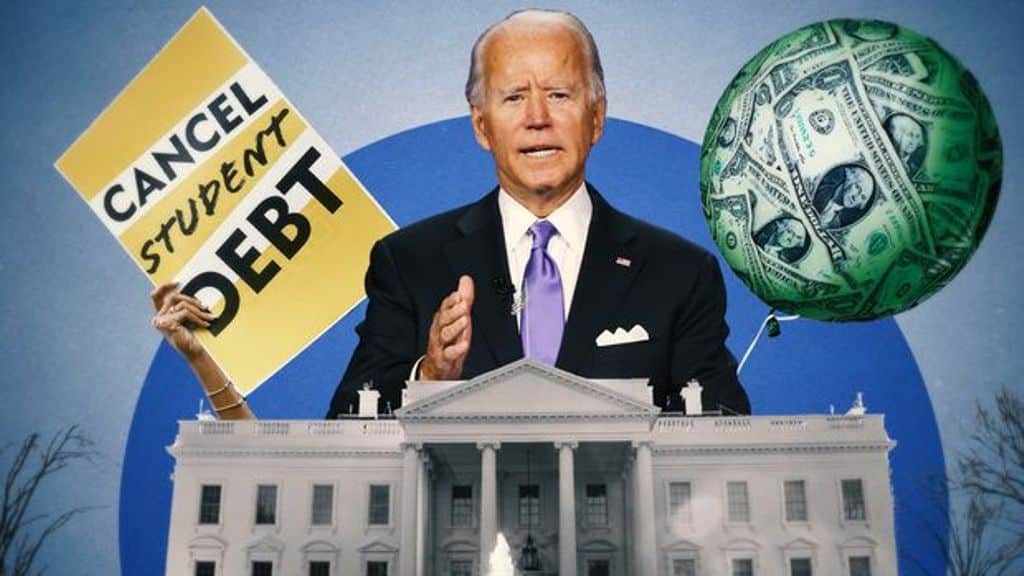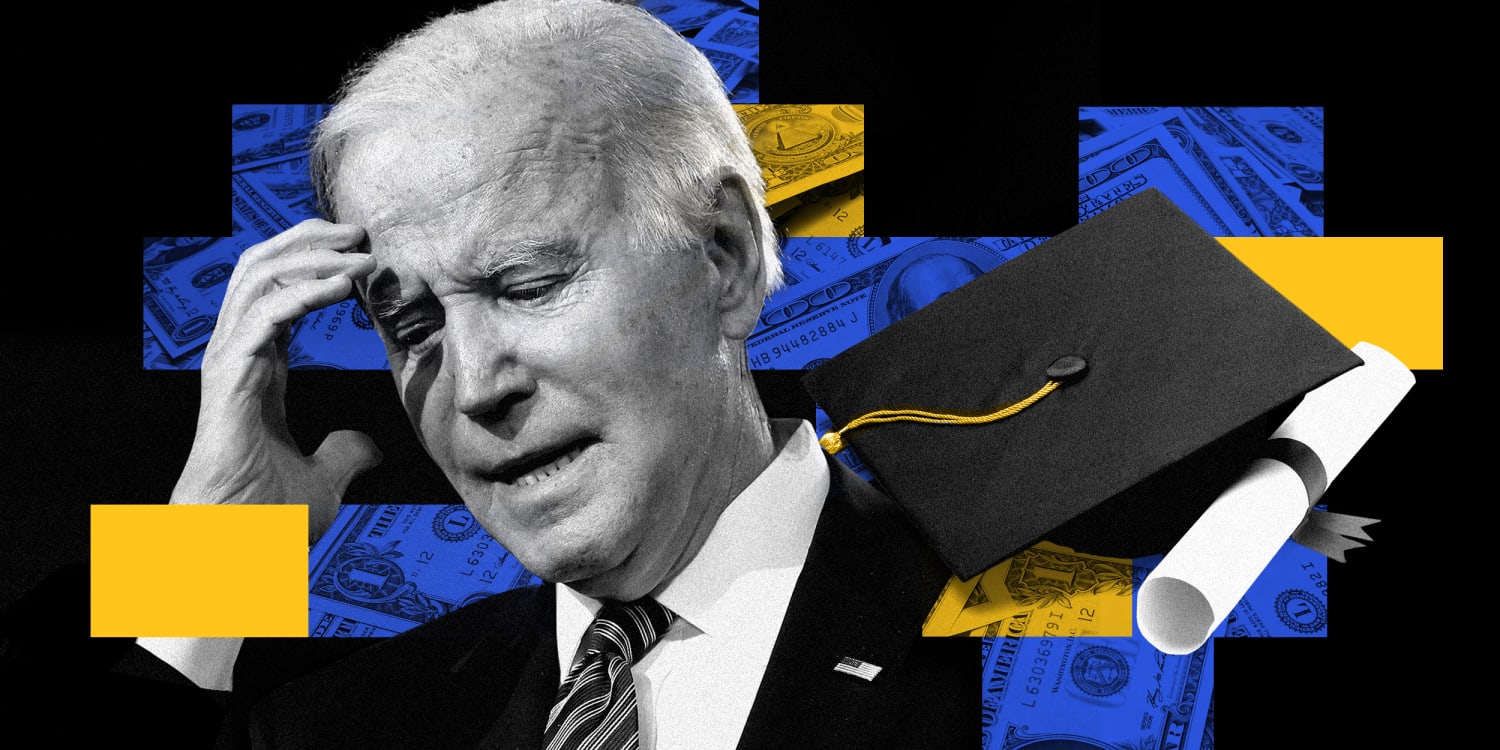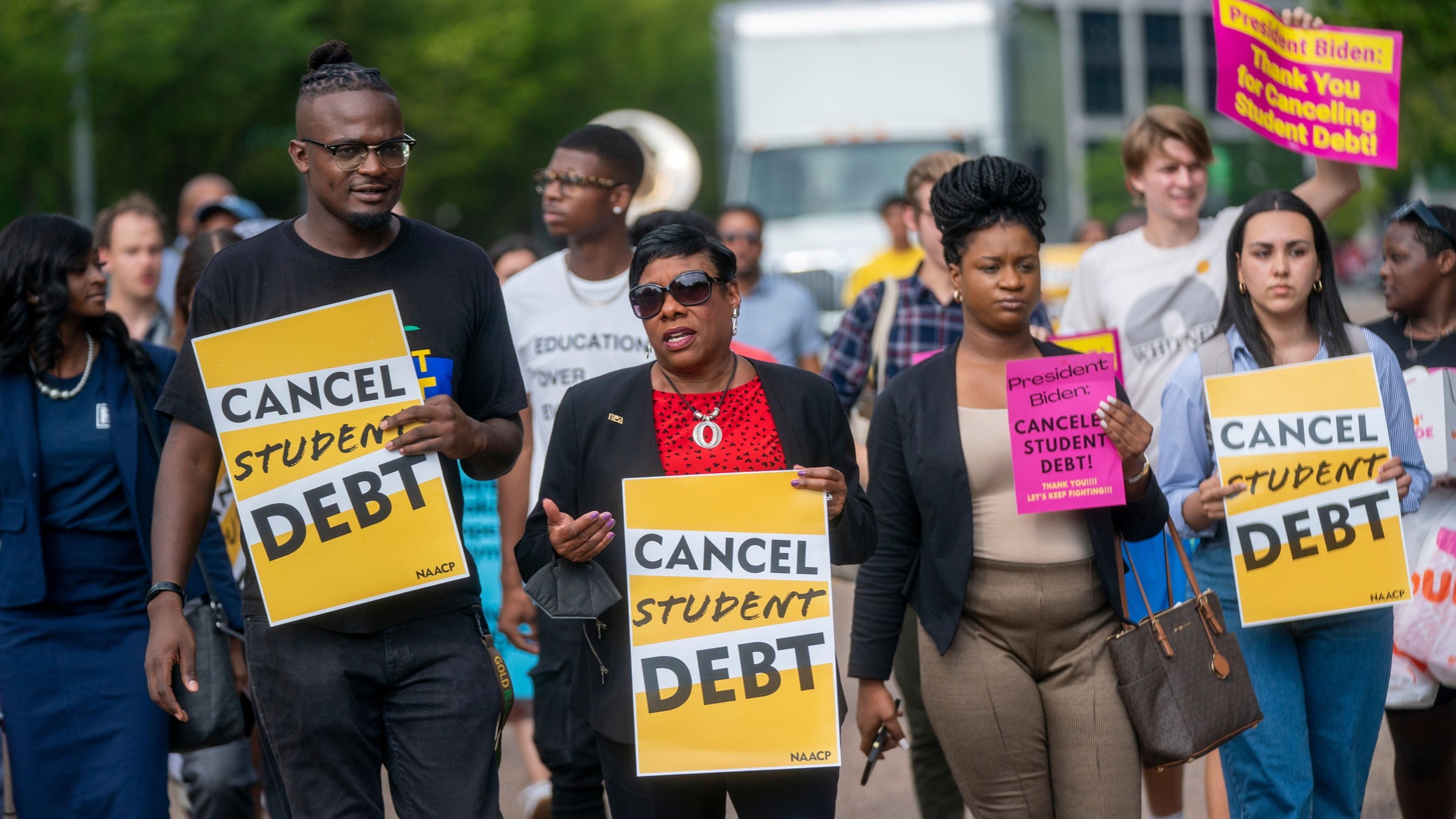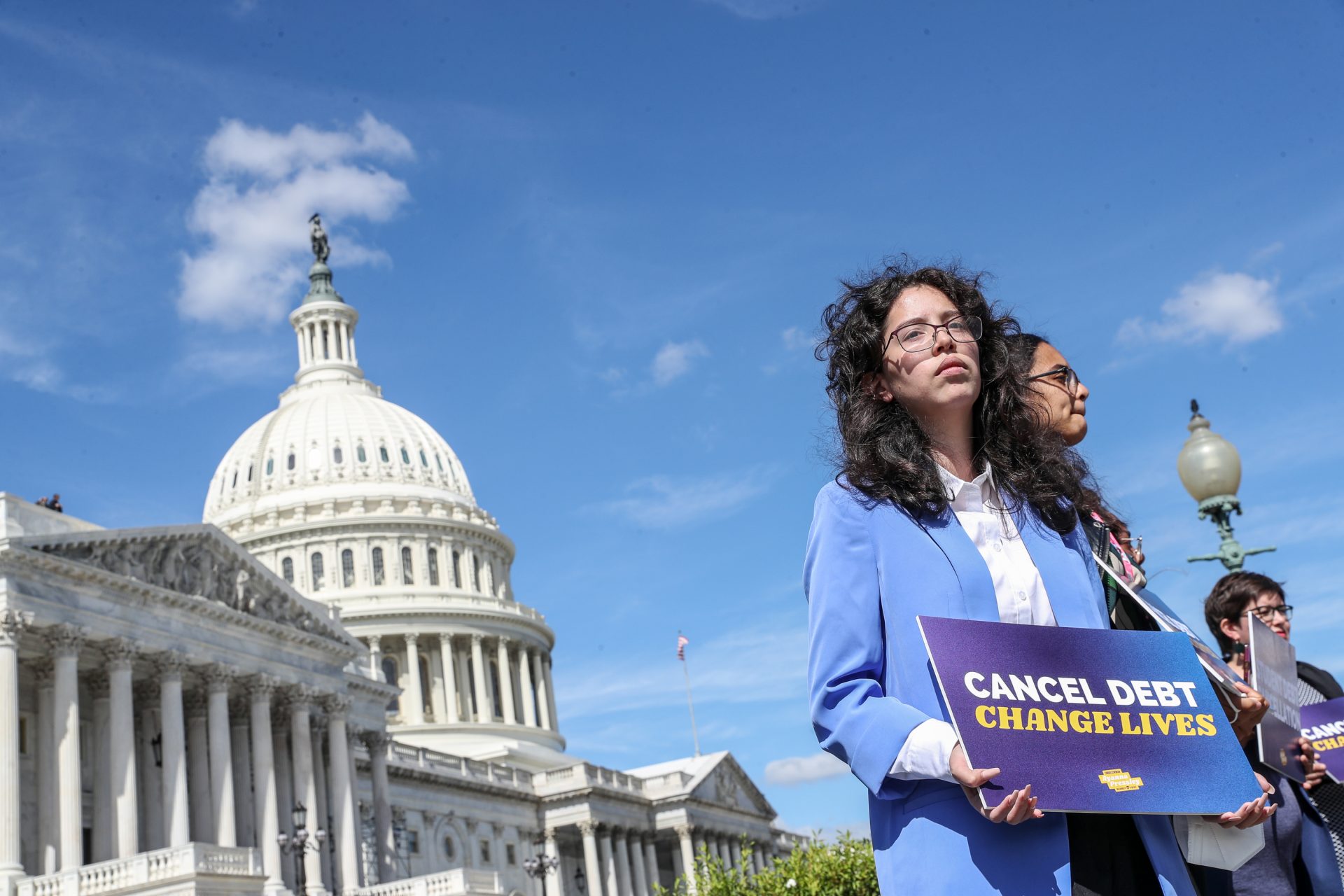President Joe Biden touted his plan to cancel billions of dollars in student debt in the days and weeks leading up to the midterm elections as he rallied young people to support Democrats.
However, the entire initiative is now in jeopardy due to legal challenges that could mean no one receives a single dollar of debt relief. The saga is quickly becoming a headache for the administration rather than an example of how the president keeps his promises to voters.
Even though two federal courts have blocked the program’s implementation, the White House remains confident that it will prevail. However, the setbacks have alarmed supporters, who are concerned that more than 40 million Americans who expected relief will instead be billed for their student debt in January when a pandemic-era payment moratorium is set to expire.
“You can’t ask people to start repaying on a debt that shouldn’t exist,” said Melissa Byrne, a loan cancellation advocate. “We bear no responsibility for this broken system.”
The impasse has put the White House in a bind over whether to extend the moratorium if the legal battle drags on, even though Biden has stated that the pandemic, which was the original reason for the payment pause, “is over.”
Student Loan Plan Nightmare
According to the Government Accountability Office, the freeze has already cost the federal government more than $100 billion in lost revenue. Critics such as the Committee for a Responsible Federal Budget are concerned that another extension will worsen inflation and increase the risk of a recession.
Republicans oppose the cancellation as an unfair handout to the wealthy, arguing that Americans who did not attend college will also bear the cost. Conservatives have launched a legal barrage against Biden’s student loan plan, claiming it exceeds the president’s authority.
Meanwhile, borrowers across the country are once again facing uncertainty. Biden’s plan would cancel $10,000 in student loan debt for those earning less than $125,000 or households earning less than $250,000. An estimated 20 million people were eligible to have their federal student debt cancelled entirely. Those who receive Pell Grants, typically given to those with lower incomes, would be eligible for an additional $10,000 in debt forgiveness.
Now, it’s unclear whether borrowers will be expected to make debt payments when the pause ends, and the political risks are increasing. Support from 43 million borrowers who have been promised at least some debt relief is at stake, including millions of younger Americans, a demographic that helped Democrats won key victories last week.
Anger directed at the Biden administration
Adwoa Asante, eligible for a $20,000 cancellation, stated that her payments would be “destabilizing” if they resumed in January. The Dallas lawyer, 33, owes $163,000 in law school debt, with monthly bills of up to $2,000.
Asante supported Biden but criticized him for reaping the benefits of his plan during the midterm elections while leaving borrowers out in the cold.
“To be honest, there’s a lot of anger directed at the Biden administration.” “I think they expected legal challenges to the student loan cancellation,” she said, calling the court challenges “to be expected.”
Cedric Richmond, a former White House official now a senior adviser to the Democratic National Committee, believes Biden will face no political consequences if the program is ultimately blocked.
If the program is eventually halted, “the blowback should go exactly where it deserves, and that’s with this rogue Supreme Court,” he said.
According to an AP VoteCast poll of more than 94,000 voters, roughly 6 in 10 voters under 45 approve of Biden’s handling of student debt. Voters were nearly evenly divided on the issue, with Democrats far more likely to approve than Republicans.
The legality of mass student loan forgiveness
Out of an estimated 43 million eligible people, nearly 26 million have already applied for debt relief. The Education Department ceased accepting new applications on Friday after a federal judge in Texas ruled against the plan.
On November 3, in New Mexico, Biden stated that he was on solid legal ground.
“We’re going to court,” he explained. We’re not going to let them get away with it.”
According to advocates, many borrowers will likely default on their student loans without the promised relief. According to a report released Tuesday, nearly half of borrowers polled by the Student Debt Crisis Center believe they cannot afford student debt payments within six months.
“Borrowers do not believe the pandemic is over, nor do they believe the economic consequences are over,” said Natalia Abrams, president of the centre. “We must put payments on hold until all legal issues are resolved.”
From the start, the legality of mass student debt forgiveness was questioned. After being elected, Biden stated that it would be preferable if the legislation came from Congress. Soon before leaving office, the Trump administration issued a memo concluding that the White House lacks broad cancellation authority.
White House erred in its Legal Reasoning.
Supporters believe Biden’s plan will survive, despite predictions that it will be heard by a Supreme Court that has shifted to the right and limited Biden’s authority in other cases. They claim that the Higher Education Act, a massive federal statute, already gives the president broad authority to cancel federal student debt.
Some groups believe Biden should use other legal means to fulfill his promise. The Debt Collective, a borrowers’ union, urges Biden to cancel debt immediately by invoking the Higher Education Act, the same legal authority first suggested by supporters such as Massachusetts Senator Elizabeth Warren.
“He has an ace up his sleeve that he hasn’t used,” said Braxton Brewington, a collective spokesperson. “The Biden administration should avoid these lawsuits entirely.”
Some legal experts believe Biden should abandon his current strategy and start over. Jed Shugerman, a law professor at New York’s Fordham University, believes the White House erred in its legal reasoning.
“The Biden administration has run into predictable trouble,” he said. “They should start from scratch.”
Even though it would take time, Shugerman believes waiting for a Supreme Court decision is preferable. He claimed that the White House is “sticking to a sure loser” rather than “changing tracks to something that has a better chance.”













